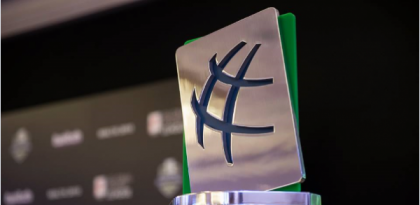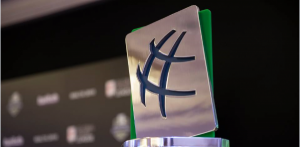GPI Head Alex Dreyfus Announces Successful $4.9M Funding Round
Alex Dreyfus, CEO of the Global Poker Index’s parent company, Mediarex Sports and Entertainment, has announced the successful conclusion of an investment-raising round designed to continue, as Dreyfus is fond of saying, the “sportification” of poker.
Dreyfus, whose Global Poker Index (GPI) has become the poker-tourney performance measurement of choice throughout the game, declared the successful fund-raising as “only the first step of a long journey to promote poker as a sport and [for GPI parent Mediarex to successfully become] a sports marketing company.”
A Mediarex announcement on the funding round offers a few specifics, which should give the GPI and several ancillary products and initiatives more time to cement their place within the game. According to the announcement, Mediarex raised the $4.9 million through the successful placement of Series A bonds with a diverse group of Asian and European investors.
The investors include what Dreyfus describes as a “first-tier private equity fund in Beijing,” plus a group of “angel investors” from the telecom, sports marketing and financial-services industries in both Europe and Asia.
Per the Mediarex statement, the corporate funding “will enable MSE to lay down the framework to develop the sport of Poker by aggregating the game’s currently fragmented audience – which number 100 million+ around the world.” More specifically, the funding will help Mediarex enhance its technological footprint, since spontaneous broadcast of the many GPI-related events over the Internet is a part of Dreyfus’s goal.
As the release promotes, the funding allows Mediarex to “build the infrastructure needed to become a full stack sports entertainment and media operator – utilizing in-house production facilities to deliver streamed poker video content, TV and live broadcasts of events such as the League and World Cup globally with a focus on fan experiences, and capable of raising the media profiles of professional players.”
The GPI and several related ventures have a made a splashy poker-world entrance over the four years since the GPI’s own 2011 debut. The GPI (first owned under the corporate entity Federated Sports & Gaming) was one of just a couple of worthy survivors to emerge from the debris of the mal-produced Epic Poker League, the brainchild of Jeffrey Pollack and Annie Duke. Only the GPI and the Heartland Poker Tour escaped their associations with the EPL in any meaningful way, and the GPI has never looked back since then.
Along with the GPI itself, which has expanded to become a family of ranking indices serving different global regions and tourney buy-in levels, the move by Dreyfus to “sportify poker” has included the launch of the Global Poker Masters, a team contest grouping some of the game’s most successful players against each other, representing their home countries.
Dreyfus has also announced plans for the Global Poker League (GPL), which consists of eight “franchises” teams of five players each, set to debut at an unspecified time later in 2015. There’s also the GPL College Cup, which is intended to offer a similar format on the collegiate level, though whether that’ll fly in the face of the NCAA’s notoriously strict bans against college names and likenesses being used in such a manner remains to be seen.
There’s also Dreyfus’s well-received European Poker Awards and American Poker Awards, with both versions already successfully launched. The awards don’t necessarily “sportify poker” themselves, but they do help boost the brand family’s overall visibility, which is certainly an important component of Dreyfus’s large-scale marketing plan.
Dreyfus continues to stress that poker has been around for centuries, but still has plenty of room for growth. “Poker is an old game, but a young industry,” Dreyfus said. “It’s a game that continues to grow, too. Poker’s global growth from 2012 and 2013 was 17%, as well as a 9.4% increase in 2014 live competition entries. Digital interest in the game continues to grow as well – up 12% in 2013, 25% in 2014 and 31% in the first half of 2015. It’s a large audience and the best way to aggregate it is to promote Poker like a sport.”
Dreyfus also predicts that “China will likely be the epicenter of the next Poker boom,” though that prediction has been made before and never quite come to pass. Dreyfus won’t be deterred. “This time,” he added, “the boom looks to be powered by eSports, the video game, media and sports industries. Thanks to our new investors we’ll be able to reach new strategic partnerships in China to help develop the sport of Poker there, creating a domino effect that has globally positive effects.”





















COMMENTS